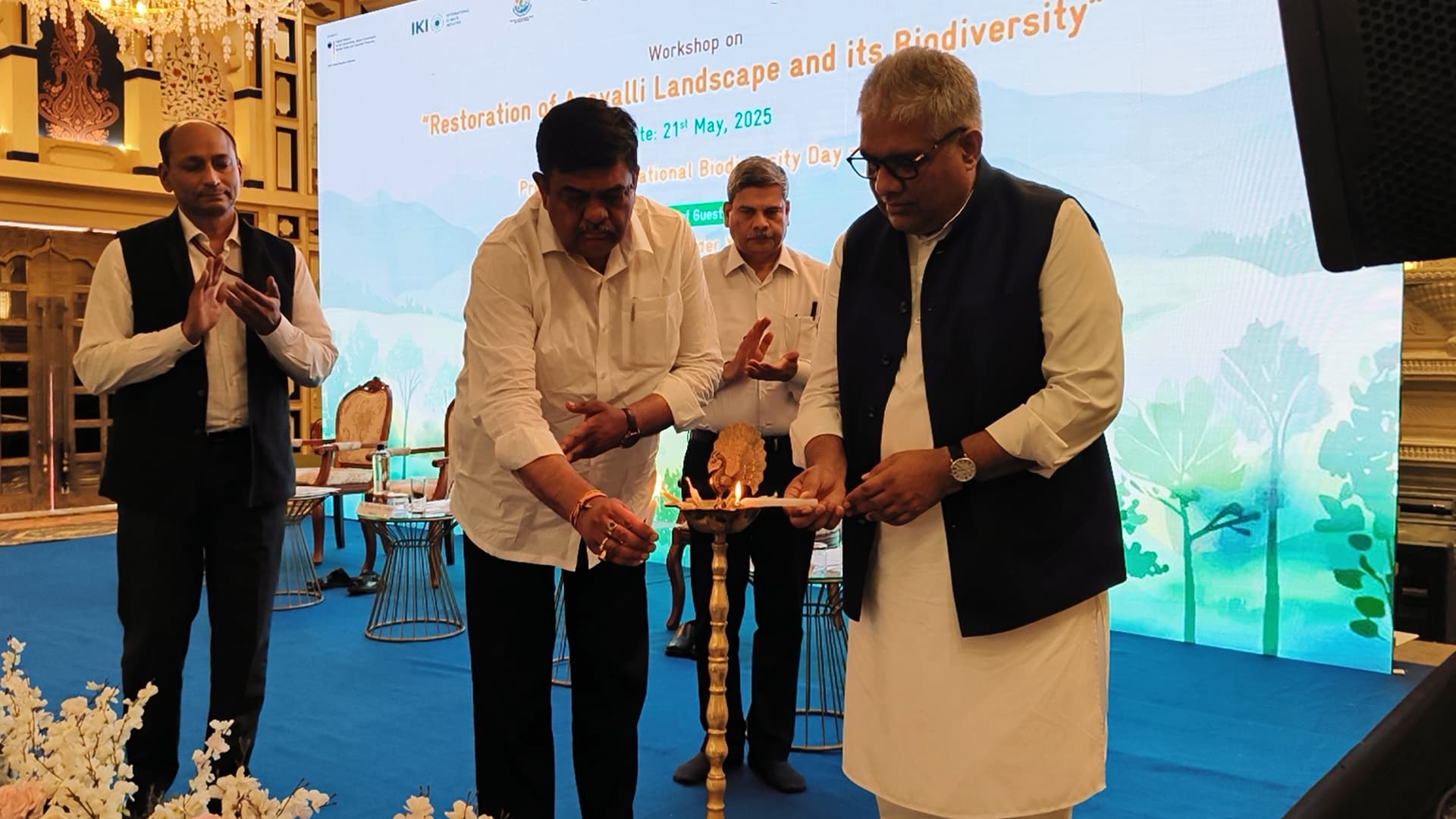Aravalli Revival and Biodiversity Workshop Held
Inauguration of Aravalli Green Wall Project; Union Minister Bhupender Yadav Highlights Cultural Significance

The Aravalli range is not merely a mountain chain but a living symbol of India's cultural heritage and valiant history, continuously serving as a source of inspiration for centuries. With this view, a national-level workshop was organized to address the revival of Aravalli landscapes and the conservation of biodiversity. Union Minister for Environment, Forest and Climate Change, Bhupender Yadav, inaugurated the workshop at Hotel Radisson Blu and emphasized the collaborative role of central and four state governments—Rajasthan, Gujarat, Haryana, and Delhi—for the sustainable future of Aravalli.
The inaugural session was graced by Rajasthan's Environment and Forest Minister Sanjay Sharma, MLAs Tarachand Jain and Phool Singh Meena, Secretary of the Ministry of Environment Tanmay Kumar, Director General of Forests Sushil Kumar Awasthi, Additional Director General Ramesh Kumar Pandey, and Rajasthan's Principal Chief Conservator of Forests Arijit Banerjee along with other senior officials from all four states.
Aravalli’s Span and Significance
In his address, Union Minister Yadav noted that the Aravalli range stretches across 29 districts of Rajasthan, Gujarat, Haryana, and Delhi. From historical battlefields like Haldighati to spiritual centers from Ambaji to Bhartṛhari, Aravalli encompasses rich heritage and ecological treasures. Despite its arid climate, the region boasts protected sanctuaries and national parks. He highlighted the adverse effects of population expansion, illegal mining, and encroachments, stressing the need for community participation in its restoration. He advocated for setting up nurseries in all Aravalli villages with inter-departmental coordination. Minister Yadav also planted a sapling prior to the event, tying the initiative to Prime Minister Narendra Modi's "One Tree in Mother's Name" campaign, which also began in the Aravalli region.
Three-Tier Audit for Plantation Drive
Rajasthan Environment Minister Sanjay Sharma shared that last year, under the "Hariyalo Rajasthan" campaign, the state surpassed its target of planting 70 million saplings. This year, the target has been increased to 100 million. To ensure post-plantation care, a three-tier audit system will be implemented involving two government and one private agency. This will help determine survival rates and inform future planning.
Aravalli Green Wall Project Launched
The event also marked the launch of the Aravalli Green Wall Project, which aims to create a 5-km buffer zone on either side of the Aravalli range. This “Green Project Area” will focus on soil moisture conservation, biodiversity protection, climate change mitigation, and wetland restoration. Identified forest and non-forest areas will be developed accordingly. Ministry Secretary Tanmay Kumar stressed the use of modern technology for monitoring and evaluation.
Panel Discussions and State Presentations
A panel discussion was held featuring presentations from all four participating states. Rajasthan’s Principal Chief Conservator of Forests Arijit Banerjee discussed the 19 Aravalli districts in Rajasthan, advocating for relaxation in tree farming regulations to promote afforestation outside forest areas. He suggested bamboo cultivation as a viable alternative for timber and employment generation. Presentations were also made by Gujarat’s Additional Principal Chief Conservator C.H. Sanwani, Haryana’s PCCF Vineet Kumar Garg, and Delhi’s S.S. Kampal, contributing their regional perspectives and strategies.
साभार :
© CopyRight Pressnote.in | A Avid Web Solutions Venture.






